I’m a lucky guy. In my work with NO-BUDGET NIGHTMARES I’ve been able to chat with dozens and dozens of micro-budget film-makers from all over the world. I’ve gotten to watch their films and dream up questions, and then – usually – get those questions answered. I’ve had a direct line to the creative process that brought these movies to life, and I’ve been able to form relationships with some incredible, talented people. How cool is that?
In every interview I do, I ask the subject to give some advice to a young or inexperienced director who is looking to tackle their first feature. Occasionally I’ll put together an article like this, which combines six (or so) months worth of interviews into a steady stream of advice from no-budget (or SOME budget) professionals.
Is it all useful advice? Hell no! But I’m of the (somewhat unpopular) opinion that everyone should make a movie. Everyone should experience the collaborative process that brings a film to life. Everyone should have an opportunity to take their creative vision and pour everything of themselves into making it real. When you see these responses collated together like this, a message begins to emerge: Just do it. You want to make a movie? Just do it. The tools are available. The people are available. Make it happen.
Check out the first ADVICE FROM THE NO-BUDGET PROS (featuring Fabian Rush, Mark Colegrove, Mark Leake, Chris Schwartz, Ben Franklin, Brett Kelly, Scott Phillips, Chris Crow, Allen Kellogg, Michael Fitzgerald, Erik L. Wilson, George Demick, J.T. Seaton and Andrew Shearer)
And MORE ADVICE FROM THE NO-BUDGET PROS (featuring Tony Nunes, Todd Jason Falcon Cook, Robert Tarantino, Phil Condit, Katie Carman, Christopher Goodman, Dayna Noffke, Jason Paul Collum, Garret DeHart, David Matheny, Mike Moring, Matthew Ragsdale, Cam McHarg, Ward Roberts, Steven A. Grainger, Paul Ragsdale)
And ADVICE FROM THE NO-BUDGET PROS III (featuring Jason Brasier, Dustin Mills, Gav Chuckie Steel, Kris McManus, Les Norris, Anthony Melton, Henrique Couto, Tara Price, Shawn Burkett, Tonjia Atomic, and Rick Dolishny)
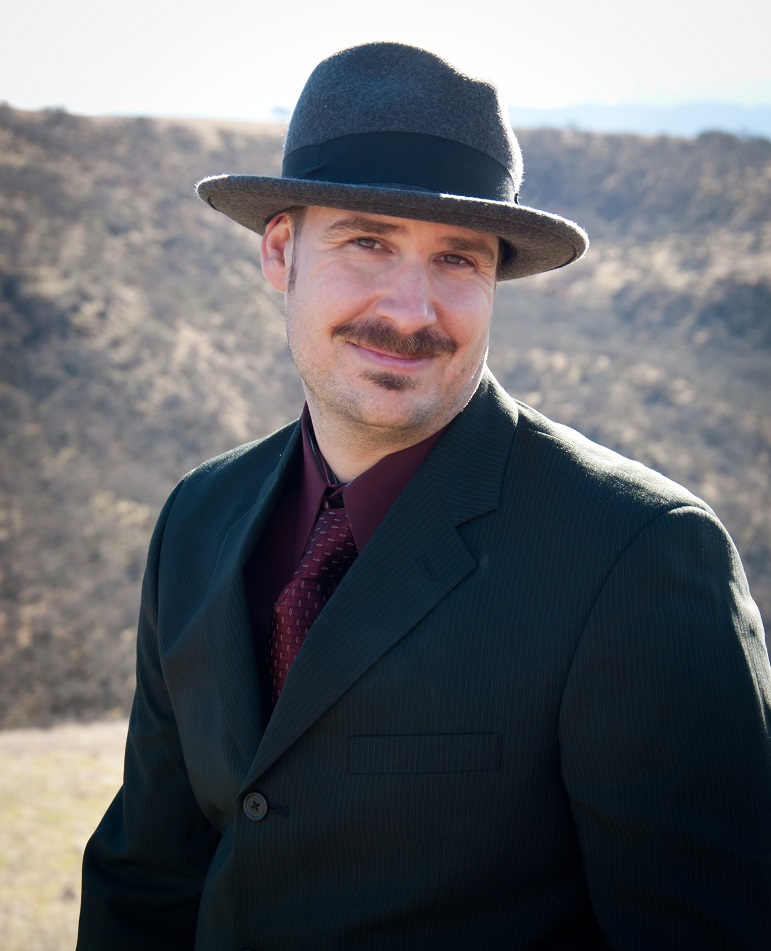
Ross Williams – Director of SELF-INFLICTED and founder of XRATS
RW: Plan, plan, plan. The better prepared you are going into the shoot, the better it’ll turn out in the end. Technology today makes it really easy to get a decent picture from complete amateurs, so filmmaking may seem like a very easy thing. But the more time you take storyboarding or coming up with shot-lists, getting all your cast, crew & equipment lined up before hand, the easier your shoot will go. Also make sure you’ve got a core group of reliable people around you. People will often volunteer their time, because filmmaking seems fun and easy from the outside, but once they’re in it, it’s often very hard work or they’ll find it boring. So you’ll have a crew of 20 the first day of the shoot, day two you’ll be down to 10, by day 5, you’ll be down to that core group of 3-5. Also, cast & crew if they’re not getting paid, will almost never show up on time, so always have a back-up plan or be flexible. Know the shots that you have to have to make the film work, get those, than build on that. I’ve been on so many sets, where we take 2 hours setting up one unnecessary shot at the opening of the day, then hurrying through 4 must-haves at the end of it.
Also, good sound is 100x harder to get than good picture. So try to have somebody who knows what they’re doing recording the sound. Bad sound is always the first thing to give away an amateur production.
That said, just have fun with it, learn by doing. Every project will make you better. Work every position on set; run cables, learn how to set-up the lights, listen to the buzz from a refrigerator ruining your dialog; know how hard everybody’s working, so you can appreciate it when you’re captaining the ship. I’m 10 years into making films, and I finally feeling like I’ve got a good grasp on it, but I’ve still go so far to go.

Michael Fredianelli – Director of THE SCARLET WORM
MF: Just make the movie with what you have. All you really need is a camera and editing software. It probably won’t be good, but you’re going to learn from your mistakes more than anything else. Experience and skills come from doing things, not sitting in a classroom or talking about it.

Drew Bolduc – Director of THE TAINT
DB: Just do it and get together a team of awesome people to help you. It is not easy.

Michael Hall – Director of KIDS GO TO THE WOODS, KIDS GET DEAD
MH: My advice to aspiring film makers is to learn as many of the positions on set or otherwise as you possibly can. Find the job people want to do the least and become indispensable at it. You’ll always be able to find work. In my case that was producing and I fell in love with it. Producing allowed me to learn and get my fingers into nearly ever aspect of production, promotion and running my own small business.
I think the biggest thing is to not wait for someone to discover you. Get out there and start making your own films as often as you can. Robert Rodriguez had done something like 30+ shorts before he made EL MARIACHI. Learn your craft and work hard. So far I have self financed all of my own films, usually with credit cards. It’s a big gamble taking that route but if you really believe in your story and get creative you can make it happen no matter what your budget. It’s better to beg for forgiveness than ask for permission. Your dreams stop being dreams when you make them a reality and the only person that can make them happen is you.
Most importantly always treat people well. Sincerity and thank you’s go a long way. And don’t ever forget to feed your crew…

Ryan Gielen – Director of DRINKING GAMES
RG: I’ve given this answer before but I get asked this question a lot and my answer is always the same: I was incredibly lucky to sit down with Chris Moore for a few minutes, producer of GOOD WILL HUNTING and the AMERICAN PIE movies. Unfortunately I was quite young, only 22 at the time and did not know good questions to ask, so I sat there like an idiot. He was incredibly generous, and I’ll never forget the piece of advice he hammered on: if you have the money to go to film grad school, don’t. Take that money and make 10 short films. Find your voice, make mistakes and learn the craft. I took that to heart. He was speaking as someone who has to evaluate craft constantly. I think he knew that an aesthetic and style- a voice- can’t be learned it has to be developed. I already saw him as a visionary, with Project Greenlight he was one of the first people to really understand the potential of the web for filmmakers, but I especially vibed with this advice because I HATE sitting in classrooms. I would always rather be on my feet making mistakes and growing. That would be my advice to anyone just starting out. Start making a lot of mistakes immediately

Derek Cole – Director of AN AMERICAN GHOST STORY
DC: The only advice I can give is make movies you like. Persistence is key, and don’t listen to the negative reviews because you will never please everyone.
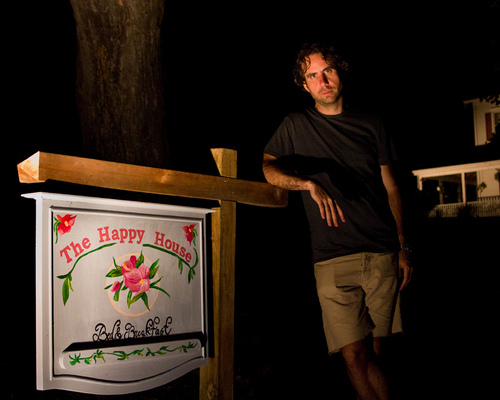
D.W. Young – Director of THE HAPPY HOUSE
DY: I guess I’d say that in my opinion there’s no inherently right or wrong way to make a film and be careful of anyway who tells you too insistently otherwise.
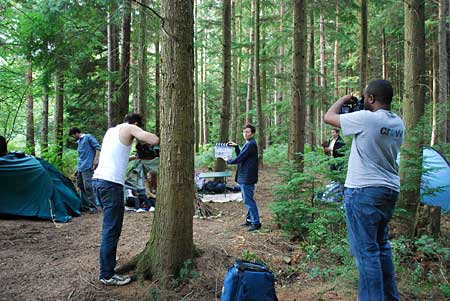
Luke Brady – Director of YOUNG, HIGH AND DEAD
LB: No one admits or tells you how emotional the journey is. You will have real highs and some epic lows. Making a feature film or long format project is extremely tough and it will bring you to the edge, the lows are very hard to deal with but are an essential part of the creative process, just never give up.

Adam “Riot” Thorne – Director of PERSONAL SPACE INVADER
AT: Just do it and show it. Don’t hide it. Don’t do it to get signed or picked up for more work. Just do it so it can been seen for better OR for worse.
You could have the budget of a small country and end up in debt for life from making a stinker. Best to just do what you can and learn from it. B-movies are like porn. You push some limits of taste and faking everything you can. If you look like you’re having fun, though, others will have fun as well regardless of your limitations.
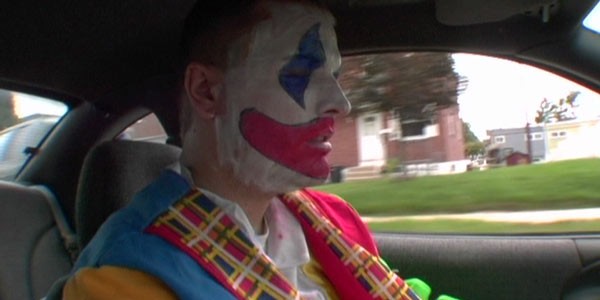
Mike O’Mahony – Director of SLOPPY THE PSYCHOTIC
MO: Make the movie, not excuses. Just shut up and do it! If you really want to, you’ll figure out how.

DPYX (Marcy Boyle and Rachel Holzman) – Directors of NOBODY CAN COOL
DPYX: The famous advice is to “write what you know”, but we would add to that to write what you have. If you have an old Chevy, use that in your script. Live on a farm? Set your movie there. Limit yourself as much as possible, and work within them. Think logistically and acknowledge that moving people and equipment will take up the bulk of your time on set.

Izzy Lee – Director of LEGITIMATE
IL: If you want to make a film, do it. JUST DO IT; don’t be the person that spends all the time in the world talking up your project but never producing it. Most importantly, do NOT let anyone, no matter who they are or how well-intentioned they may seem, make you give up. Persistence is half the battle. Go to film festivals regularly and make lots of friends and contacts. The people that attend these festivals may end up becoming influential in your career or potential collaborators.

Bjarke Johansen – Director of PIG STY
BJ: Do sound tests! Bad sound can really kill a film and besides, look at all the shit I had to go through with PIG STY!
But more importantly: try to work with the things you already have, or know you have free or cheap access to. They can spark a lot of ideas and save a lot of money. Be well prepared – think about your shots beforehand, even if just for key scenes. It gives you a working structure and still allows you to improvise when a better idea strikes, without having you wing it through the whole thing. And make sure to set plenty of time aside for shooting, or you end up with a massive schedule slip once something goes wrong (and it will).
The final and most pivotal piece of advice is “get it done and don’t give up”. Even if your film is not exactly great, you’ve made a film. That’s more than a lot of people who keep talking about doing it have, and you grow with each one as you overcome the challenges the shoot throws at you.

Kalen Artinian – Director of RUBY’S SECRET
KA: I don’t really feel like I’m in a position to really give any advice considering how new I am in this business but I’ll pass down some great advice that has been given to me. A while back I sent a director I had interned for in the past a rough cut of a music video I was currently editing for some feedback. He gave me some great notes and he ended the email with “Just keep makin’ shit.” It really stuck with me. It changed my mindset going forward. My rate of production went up significantly after that. A year or so after that I ran into a former boss of mine at a party and I was telling him about my career plans and how people had told me in the past that if you’re good enough someone will find you. I’m a very impatient person so I didn’t like that approach at all. He told me “In this industry you don’t wait for shit.” It was great advice.
So that became what I like to call my “Shit Theory”.
1. Just keep makin’ shit.
2. Don’t wait for shit.
Also, Robert Rodriguez’s “Rebel without a Crew” is a mandatory book for any aspiring filmmaker.

Richard Powell – Director of FAMILIAR
RP: I’d say find a few like minded people who care more about making a good film than getting a pay-day. You need to be willing to starve and scrape by in the begging and invest in yourself. If you aren’t willing to invest in yourself, why should anyone else? Also, find a few real pros to learn from, attach them to your project if possible. Make deals to get some really talented cast and crew, they will elevate you and your film.
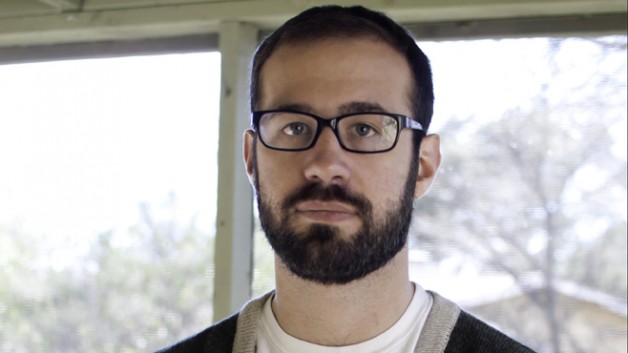
Josh Johnson – Director of REWIND THIS!
JJ: The first piece of advice I would offer is to start as soon as you can. Don’t wait for the perfect circumstances. They don’t exist and they never will. If you have a script that is out of scope for the budget you can realistically raise, start writing a new one. If that script is truly ready to go in front of cameras this instant, it will be equally ready when you have access to the necessary funds in the future.
Utilize your available resources, and push yourself to create something that transcends your limitations. If you’re looking to make a doc versus a narrative, just start shooting. The more footage you begin to capture, the more you’ll begin to understand the shape of your film. The beauty of this type of shooting is that you can also fund as you go, piece by piece.
The two most important pieces of advice I can offer are applicable to filmmaking, but are also applicable to life in general. 1) Be kind. Do you want to create something great? Do you want to enjoy doing it? Treat everyone you collaborate with respectfully, and see how much better their work becomes. Marvel at how many people will want to support you and offer you their help. The atmosphere of the production will absolutely find its way onto the screen, so you owe it to yourself to create the best possible environment. 2) Be passionate. Never feel ashamed or embarrassed by how much your film matters to you. It is this quality that will make it matter to others. Attack every day with as much energy and focus as you can muster.
Making a film requires tremendous confidence. Embrace your passion, project it outward, and invite your colleagues to invest in it. Don’t be surprised when they do.
Doug “Sweetback” Tilley
- [NO-BUDGET NIGHTMARES] PODCAST #80: PLAGA ZOMBIE (1997) - July 25, 2016

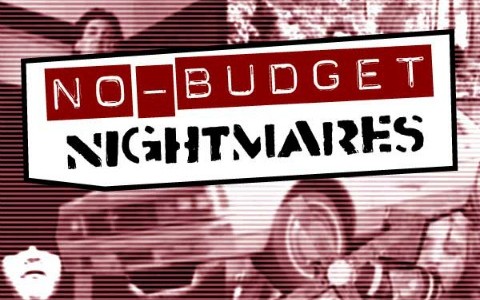

No Comments